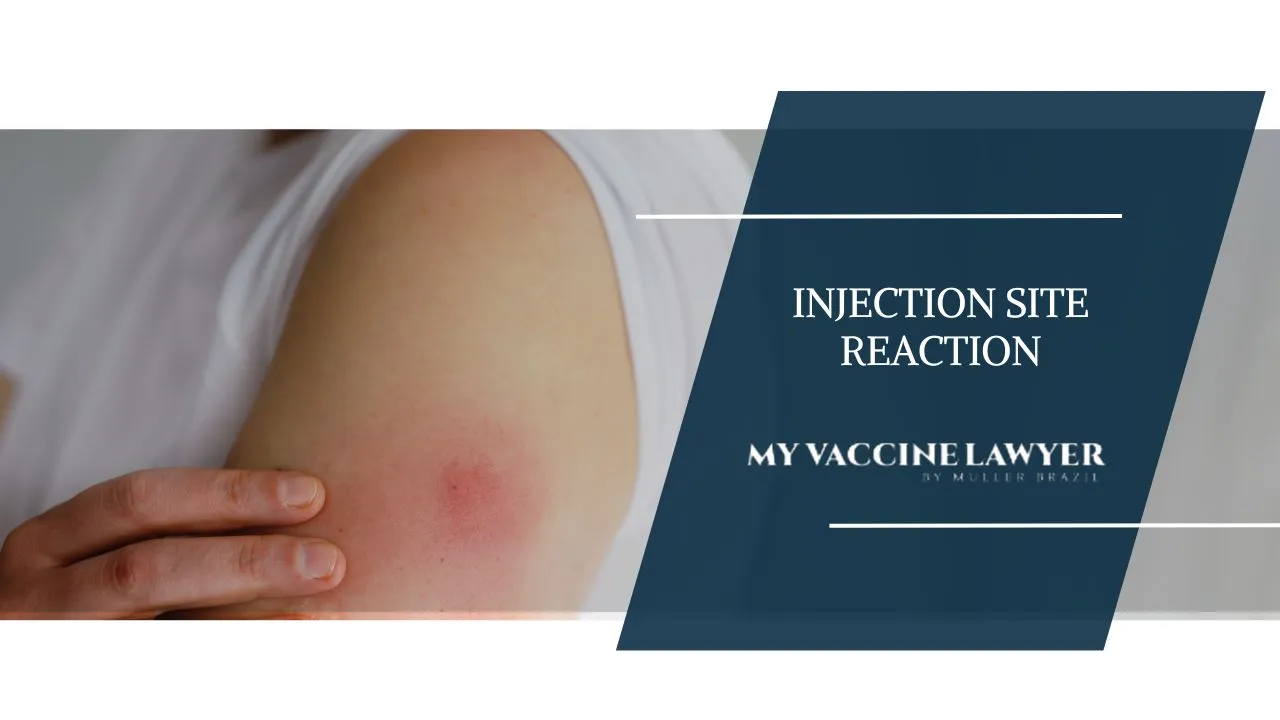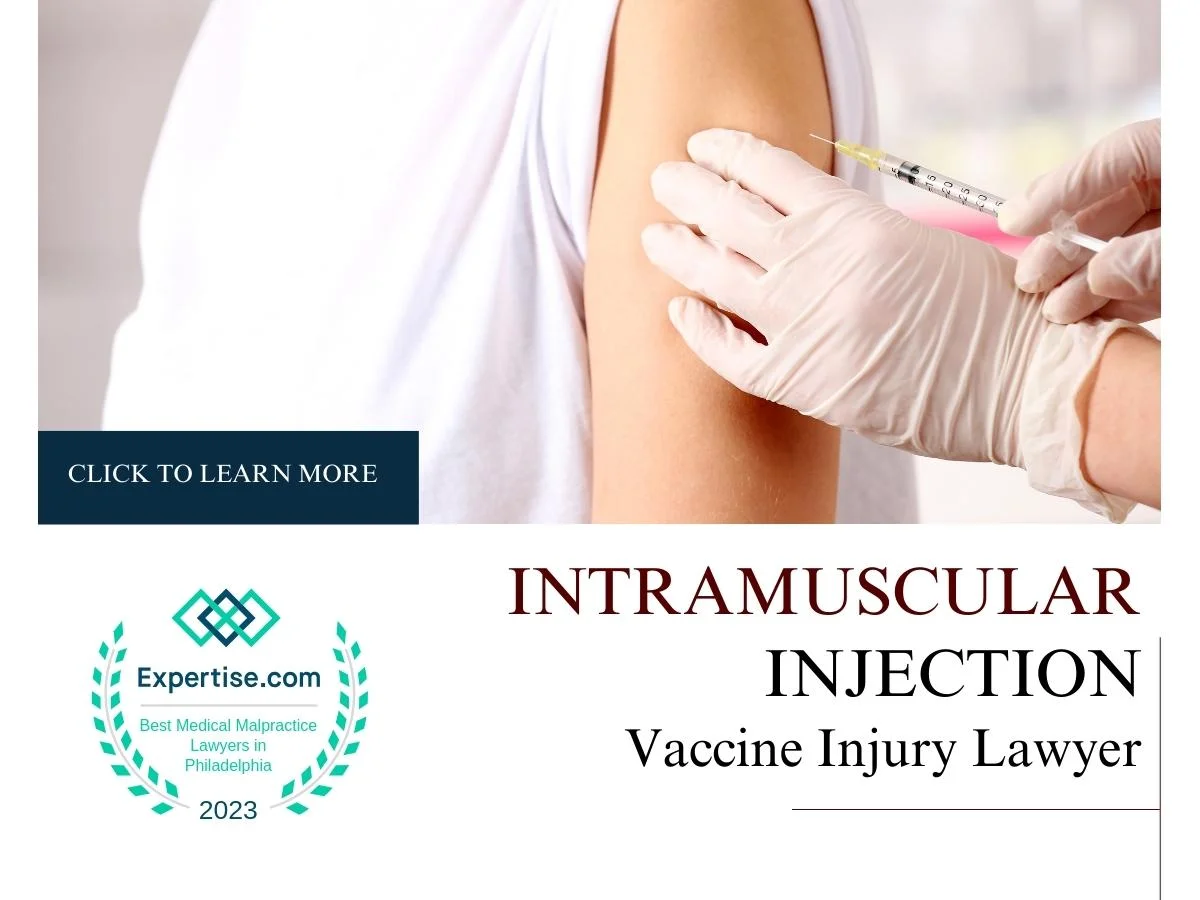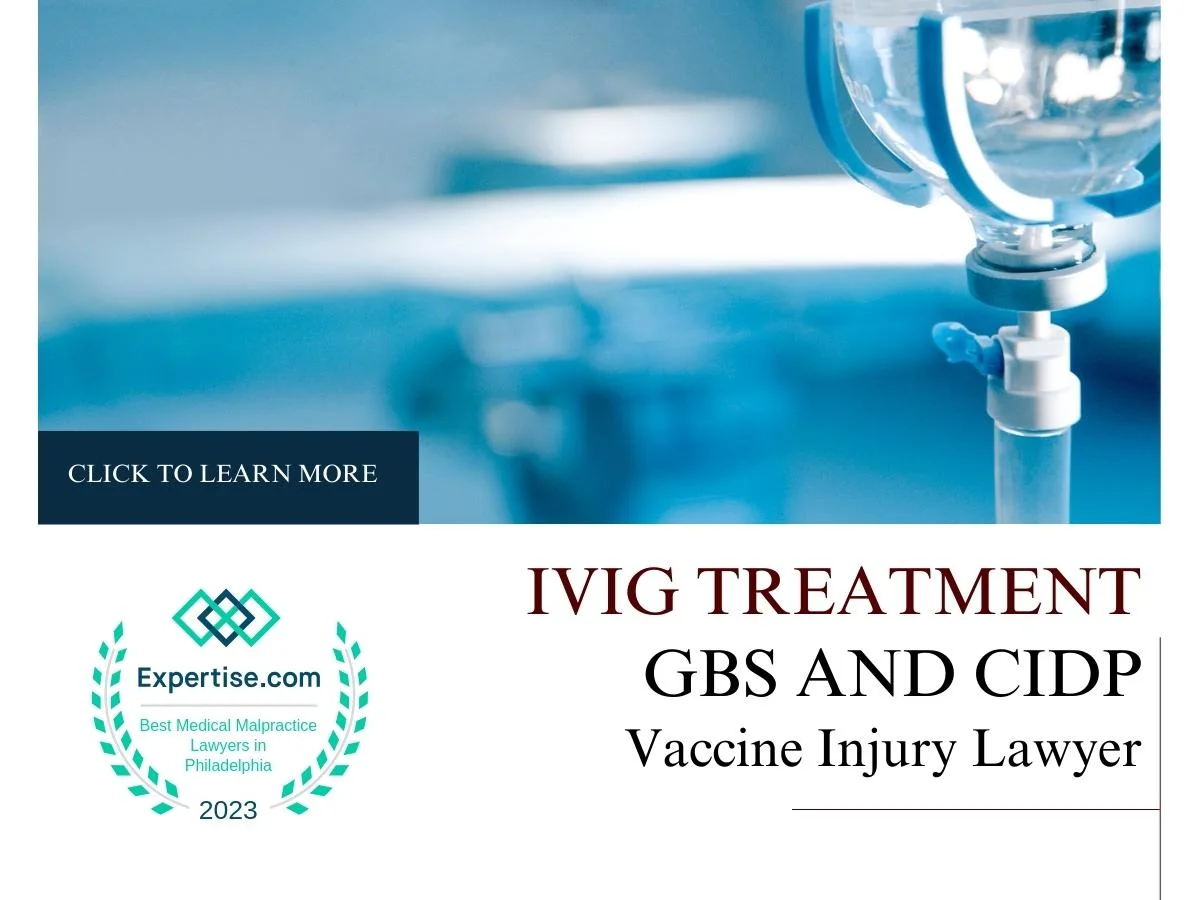Guillain-Barré Syndrome in Children: Symptoms & Treatment
If your child suddenly feels weak or has trouble moving, they might have Guillain-Barre Syndrome (GBS), a serious nerve condition. Catching this...
2 min read
Vaccine Injury Law Resources / Guillain-Barré Syndrome / IVIG Treatment for GBS and CIDP: Vaccine Injury Help
 Paul Brazil
:
Dec 17, 2013 8:14:16 PM
Paul Brazil
:
Dec 17, 2013 8:14:16 PM
Having the intravenous immunoglobulin (IVIG) therapy helps people with Guillain-Barre Syndrome ("GBS") and Chronic Inflammatory Demyelinating Polyneuropathy (CIDP). These conditions, often triggered by vaccines, cause muscle weakness and sometimes paralysis. IVIG therapy uses antibodies from healthy donors to treat these symptoms. While effective, recovery can vary, and some patients may still have difficulty walking after six months. If you or someone you know has GBS or CIDP, talk to your doctor about IVIG therapy as a possible treatment option. For legal assistance, contact My Vaccine Lawyer.
The initial symptoms of GBS are typically numbness, weakness or tingling in the legs and arms. Those sensations can spread to the arms and upper body and can sometimes develop into symptoms of paralysis. In order to diagnose individuals with GBS, doctors employ a physical examination and diagnostic tests such as a lumbar puncture and a nerve conduction study.
Individuals who are diagnosed with GBS are typically admitted to a hospital for close monitoring until it has been determined that the symptoms have plateaued. In most cases, doctors prescribe corticosteroids, plasmapheresis (plasma exchange) and Intravenous immunoglobulin (IVIG) therapy, a proven effective treatment for GBS.
IVIG is a sterile solution of concentrated antibodies extracted from healthy donors which is administered into a vein. It is typically prepared from the serum of between 1000 and 15 000 donors per batch. The plasma from all of these individuals is pooled together and chemically treated to isolate the immune globulins and remove any other blood proteins or blood-borne pathogens. The end result is a purified immune globulin. For patients with GBS, IVIG is applied in a regimen of 2 g/kg bodyweight, usually as 0.4 g/kg bodyweight per day for five consecutive days.
Although IVIG is considered an effective treatment of GBS, prognosis is highly variable and difficult to predict: about 20% of patients are still unable to walk unaided after 6 months. Important variables associated with poor outcome are age, presence of preceding diarrhea and the severity of early symptoms.
The national vaccine attorneys at My Vaccine Lawyer have dedicated our careers to fighting for the victims of severe vaccine reactions including people who developed GBS or CIDP following a vaccination. If you believe you may have suffered an adverse reaction to a vaccine, please contact My Vaccine Lawyer at (800) 229-7704 for a free consultation.
Paul Brazil is a native of Dunmore, Pennsylvania and a graduate of Dunmore High School. For his undergraduate education, he attended Bloomsburg University where he majored in political science. He then went on to earn his JD from Widener University School of Law. Following graduation from law school, Mr. Brazil worked at a large Philadelphia civil defense firm where he litigated workers’ compensation claims and Heart and Lung Act cases. In 2012, he joined with his coworker Max Muller to form Muller Brazil.

If your child suddenly feels weak or has trouble moving, they might have Guillain-Barre Syndrome (GBS), a serious nerve condition. Catching this...

In this blog post, we will dive into the various types of vaccine injection site reactions, their symptoms, treatment and how to prevent and manage...

Incorrect intramuscular injections can lead to nerve damage, muscle atrophy, and severe complications, making proper technique essential for safe...
